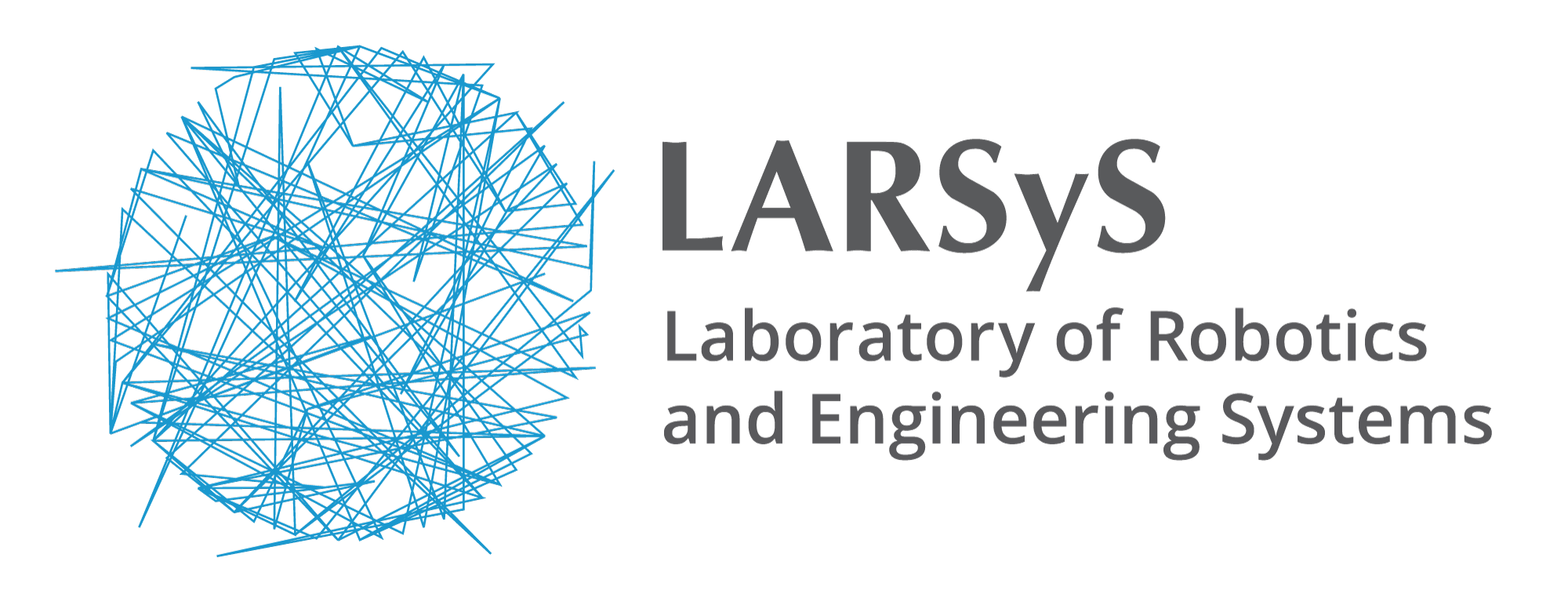LARSyS develops interdisciplinary research in Robotics and Engineering Systems, bringing together four R&D units, involving the University of Lisbon (through IST-Instituto Superior Técnico) and the University of Madeira:
- Institute for Systems and Robotics (ISR)
- Centre for Innovation, Technology and Policy Research (IN+)
- Marine,Environment & Technology Centre (MARETEC)
- Interactive Technologies Institute (ITI)
The IST-ID (Association of Instituto Superior Técnico for Research and Development) is a private not-for-profit institution, which aims at carrying out Science and Technology activities. Instituto Superior Técnico (IST) is one of the founding associates of IST-ID and provides the large majority of facilities where IST-ID activities are carried out. IST is the largest and most reputed school of engineering, science and technology in Portugal. Since its creation in 1911, the mission of IST is to contribute to the development of society by providing top quality higher education in the areas of Engineering, Science, Technology and Architecture, at undergraduate and postgraduate levels, as well as developing Research and Innovation activities, in Portugal and internationally, that support teaching activities that meet the highest international standards.
Under agreements established between IST and IST-ID, in place since 2011, IST-ID provides the support to R&D activities of the Research Units it hosts, in terms of installations (offices, laboratories and common infrastructures), campus facilities and services, human resources (administrative, management, purchase and procurement, legal support), internet, mailing and remote conference infrastructures, congress center and meeting rooms, library, mechanical, electrical and glass workshops, among many others available at IST. IST-ID commits to providing the above referred support to LARSyS both in terms of human and technical resources aiming at carrying out the proposed R&D activities.
The Interactive Technologies Institute was born in early 2009 from a group of researchers, who led its formation as an autonomous research unit. That group was a mix of Professors from the University of Madeira (UMa) and Faculty recruited under the Carnegie Mellon International partnership. This original group of founders was able to get a very positive independent evaluation and join the Institute de Sistemas e Robótica (ISR) Associated Laboratory (which in the 2013 national evaluation became LARSyS). At the end of 2009 M-ITI Associação – the not-for-profit institution – was created as an association between the Regional Government of Madeira and UMa. M-ITI was the first and only innovation institute of UMa in an organisational model which aimed at combining Master’s-level education with innovation projects and industry. In this model ITI, as a research unit, and the M-ITI Association co-existed under a common vision that combined Master’s-level teaching with research and innovation projects. The sustainability of M-ITI was significantly dependent on teaching and tuition which, in turn, provided academic career positions at UMa. was founded in 2010 as an outgrowth of the Carnegie Mellon International partnership; its founding members are the University of Madeira (UMa), Madeira Tecnopolo S.A. (MT) and Carnegie Mellon University (CMU).
ITI is the natural evolution of M-ITI into a wider national institutional context which can bring new opportunities for a more distributed sustainability model by drawing and providing career paths that dilute the tensions and focus on a single institution.
The regulations of ITI enable our research unit to maintain its scientific independence while staying connected to the main stakeholders: LARSyS, the University of Madeira, Institute Superior Técnico and the other academic institutions – like FBAUL or ISCTE – that would like to benefit to be associate with an excellence research center like LARSYS. This enables faculty from these institutions to have access and recognition of their research performance in their careers and the institutions to benefit from the accreditation of their academic programs. This distinction also clearly separates the scientific management of the research team and the financial and administrative management of the research grants and projects (including compliance with FCT regulations and legal procedures).
ITI is dedicated to the interdisciplinary field of HCI and encloses Psychology and Social Sciences, Computer Science, and Creativity and Design as core scientific areas.

